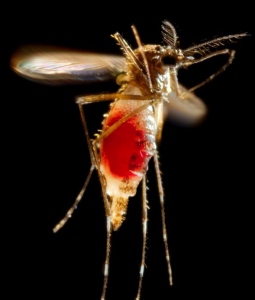By NewsDesk @infectiousdiseasenews
Singapore health officials continue to report high numbers of dengue fever this year seeing 300-400 cases each week.

Through May 6, some 6800 dengue cases have been reported, in fact, officials say the number of dengue cases in 2020 is projected to exceed the 16,000 cases in 2019.
The National Environment Agency (NEA) said Wednesday that they will expand releases of male Wolbachia-carrying Aedes aegypti (Wolbachia-Aedes) mosquitoes to selected dengue high-risk neighborhoods at Choa Chu Kang, Keat Hong and Hong Kah North, which have high Aedes aegypti mosquito populations.
Singapore has achieved more than 90 per cent suppression of the urban Aedes aegypti mosquito population at existing study sites at Yishun and Tampines towns, and has kept these populations at low dengue-risk levels for more than a year.
NEA continues to develop and test automated solutions to ramp up production of Wolbachia-Aedes mosquitoes, so that releases can be extended to more areas with high Aedes aegypti mosquito population in future.
The Aedes aegypti mosquito is the primary vector of dengue, chikungunya and Zika viruses in Singapore.
The Wolbachia bacterium carried by the released male mosquitoes is safe. Wolbachia occurs naturally and is found in more than 60 per cent of insect species, including butterflies, fruit flies, dragonflies, and various mosquito species. As male mosquitoes do not bite, the release of male Wolbachia–Aedes mosquitoes will not pose any additional risk of biting or disease transmission. On the contrary, the risk of dengue transmission could be lowered if the study successfully reduces urban Aedes aegypti mosquito populations in the community.
- COVID-19 infection: Sense of smell lost by 3rd day in most patients
- Nigeria sees COVID-19 count top 3,000
- Russia reports jump in COVID-19 infections, ‘Diagnostics have become more actively used’ according to Chief Infectionist
- Taiwan reports additional Hantavirus hemorrhagic fever case
- 3D human tissue culture model demonstrates a possible relationship between Alzheimer’s disease and herpes simplex virus I infection
- Bat-virus adaptation may explain species spillover, researchers say
- Antibiotics: RECARBRIO vs. PIP/TAZ Phase 3 clinical trial results
- Indonesia: Dengue cases spike in a time of COVID-19

